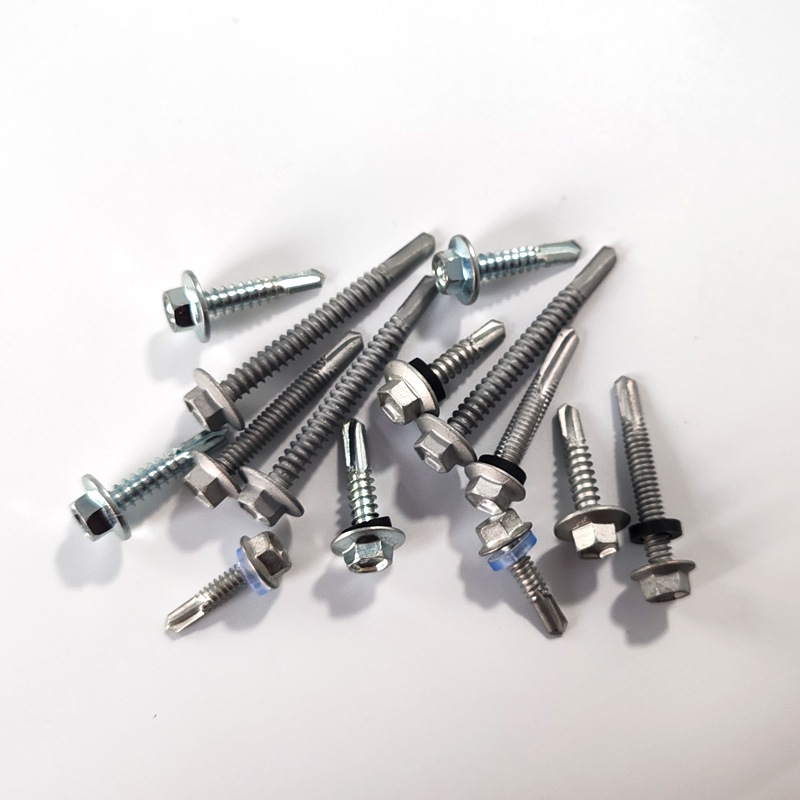Types of Foundation Anchor Bolts for Structural Stability and Safety
Understanding Foundation Anchor Bolt Types
Foundation anchor bolts are crucial components in construction, serving to secure structures to their foundations. These bolts provide stability and resistance against various forces, including wind, seismic activity, and settling. The correct selection of anchor bolts is vital for construction safety and integrity. This article will explore various types of foundation anchor bolts, their applications, and selection criteria.
Types of Foundation Anchor Bolts
1. L-Bolts L-bolts are shaped like the letter L and are used primarily for anchoring into concrete. They are normally embedded into the concrete foundation, with the long end securing the structure above. Common applications include anchoring columns, machinery, and structural steel. The design allows them to resist extraction forces efficiently, making them suitable for various industrial and commercial constructions.
2. J-Bolts Similar to L-bolts, J-bolts are curved at one end, resembling the letter J. They are often used to anchor wooden structures and are typically set in concrete. The curved end provides a stronger hold, preventing the bolt from pulling out when tension is applied. J-bolts are widely used in residential construction, particularly for securing sill plates to foundations.
3. Straight Bolts These are simple, straight bolts that are typically used with nuts and washers. Straight bolts can be installed in pre-drilled holes in the foundation and are often used in precast concrete applications and industrial settings. Their simplicity and versatility make them a popular choice for many projects.
4. Cast-In Place Bolts These bolts are integrated into concrete forms before the concrete is poured. They allow for a stronger bond between the bolt and the concrete since they become part of the foundation. Cast-in-place bolts are ideal for heavy-duty applications, such as restraining large machinery or structural components in high-load environments.
5. Expansion Bolts Often used in masonry or brickwork, expansion bolts are designed to expand upon installation. When inserted into a pre-drilled hole, these bolts expand outward as the nut is tightened, creating a strong grip within the substrate. They are suited for securing fixtures in various building materials, including concrete and brick.
foundation anchor bolt types

6. Sleeve Anchors A sleeve anchor consists of a threaded bolt with a sleeve that expands against the sides of a drilled hole in concrete. This type is ideal for heavy loads, providing excellent holding power and shear strength. Sleeve anchors are often used in applications requiring medium to heavy-duty fastening, such as attaching railings, equipment, or shelving.
Selection Criteria
When selecting foundation anchor bolts, it is essential to consider several factors
1. Load Requirements The type of load (tension or shear) that the bolt will bear is critical. Understanding the forces exerted on the structure can help determine the most suitable bolt type.
2. Material Compatibility The anchor bolt material should be compatible with the materials it will be anchored to. For instance, stainless steel bolts may be preferred in corrosive environments, while carbon steel bolts are often used in general applications.
3. Environmental Factors Weather conditions, exposure to chemicals, and temperature variations can affect bolt performance. Choosing the right coating or material can help mitigate corrosion and ensure longevity.
4. Installation Method The nature of the installation environment, whether requiring pre-drilled holes or embedded configurations, can influence the choice of anchor bolt.
In conclusion, understanding the various types of foundation anchor bolts and their applications is essential for ensuring the safety and integrity of any construction project. Proper selection and installation will provide stability and longevity, safeguarding the structure against external forces.
-
Weatherproof Plastic Expansion Anchors for Outdoorຂ່າວJun.06,2025
-
Sustainability in the Supply Chain: Eco-Friendly TEK Screws Productionຂ່າວJun.06,2025
-
Load-Bearing Capacity of External Insulation Fixingsຂ່າວJun.06,2025
-
Double Head Bolts: Enhancing Efficiency in Industrial Machineryຂ່າວJun.06,2025
-
Corrosion Resistance in Chipboard Screws: Coatings for Wholesale Durabilityຂ່າວJun.06,2025
-
Butterfly Toggle Bolts : Enhancing Structural Resilienceຂ່າວJun.06,2025
